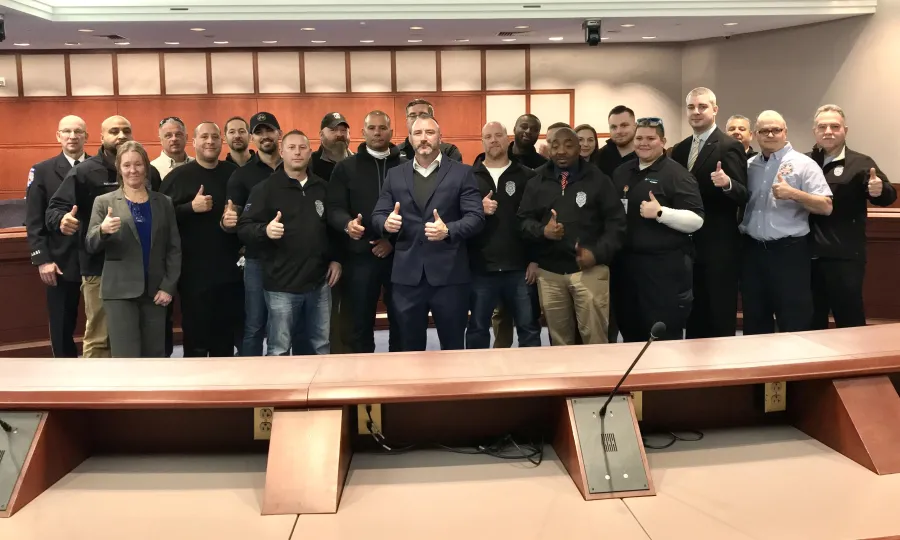C4 Members Urge Legislators to Expand PTSI Benefits

Building on the momentum created by the enactment of groundbreaking legislation that provides post-traumatic stress benefits to police officers and fire fighters, Council 4 members urged state lawmakers to expand coverage to include other emergency responders.
Rudy Demiraj, a recently retired correction officer and immediate past president of AFSCME Local 387, and Ryan Graham, an emergency dispatcher for the State of Connecticut and member of AFSCME Local 610, represented Council 4 on a panel discussion that was the centerpiece of a Labor Committee public hearing on Nov. 22.
“Statistics demonstrate that correctional employees have higher rates of depression, higher rates of PTSD, higher rates of suicide and divorce than the general worker population and all other first responders,” Demiraj told legislators.
“We are the first of the first responders when it comes to emergency situations,” Graham added in describing the challenges faced by state and local emergency dispatchers. He cited the Sandy Hook massacre in Dec. 2012 as an example of an event that left emergency dispatchers in our AFSCME NP-3 bargaining unit permanently traumatized.
Nick DeMico, a state juvenile detention officer and member of Local 749 also testified at the hearing. He urged legislators to also include hazardous duty employees in the state Judicial Branch.
“We have no counseling or treatment offered by the state to help us cope with the aftermath of a traumatic event,” DeMico testified. “This can cause greater emotional stress and forcing workers to try and help themselves due to the lack of resources available.”
In 2019, Gov. Lamont signed into law Public Act 19-17. The bill, which passed both the House of Representatives and State Senate with unanimous bi-partisan support, provides post-traumatic stress disorder (PTSD) coverage for police officers, fire fighters and parole officers who experience one of six qualifying events:
- Witnessing the death of a person;
- Witnessing an injury that causes the death of a person shortly thereafter;
- Treating an injured person who dies shortly thereafter;
- Carrying an injured person who dies shortly thereafter;
- Viewing a deceased minor;
- Witnessing an incident that causes a person to lose a body part, to suffer a loss of body function, or that results in permanent disfigurement.
The bill language also called on the legislature to study the feasibility of expanding benefits to include correction officers and emergency medical personnel (EMS).
Sen. Cathy Osten of Sprague and Labor Committee Co-Chairs Sen. Julie Kushner of Danbury and Rep. Robyn Porter of Hamden are leading the effort to expand PTSI coverage during the 2020 General Assembly, which begins on Feb. 5.
